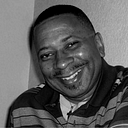Racism In The Wake Of The Rampant Spread Of The Omicron Strain Of The Covid-19 Virus
Just when we thought we put the COVID-19 pandemic behind us, the variant Omicron is showing us how vulnerable we still are and highlighting all the drawbacks in not just our health system and economy but also our society as well.
It has been 157 years till date since slavery ended in America, and the same timeline has followed in other parts of Europe, give or take a few years. However, has it really been eliminated from our perceptions and mindset, from our outlook and instinct, and most importantly, from our reactions when it comes to crisis situations? For example, our school textbooks might say Juneteenth is on the 19th of June, but I would bet that if you ask people on any random street in America, at least half would ask back what is Juneteenth?
Hidden Racism
This does not come from ignorance or a disregard to know important facts of one’s own country’s history and culture but arises from the fact that ultimately we don’t care enough to know or remember. Many consider racism an evil of the past. Until the #BlackLivesMatter movement, this statement might have rung true, at least to most of the world. However, the gravity and reach of the movement exposed the long trenches of racial sentiments still present among the American people. Movies like “Remember the titans” promote the message that we have put racism behind us, but the fact remains, without a shadow of a doubt, that it hasn’t disappeared but just remained hidden and unobserved.
Racism in the wake of the spread of Omicron strain of COVID-19
Most recently, the rampant travel bans from several African states to America have further highlighted that we still live in a world where when “push comes to shove,” we would rather give in to baseless fears and prejudice. In addition, the rampant spread of the Omicron strain of the COVID-19 virus, despite ambiguity toward its origin of spread, has affected nearly 40 countries as of the most recent reports. Still, only 5 of those countries are from the African continent.
Yet, America has issued a travel ban that covers a total population of 135 million people, including the African states of South Africa, Eswatini, Botswana, Lesotho, Mozambique, Malawi, Namibia, and Zimbabwe. The irony is that it was the South African and Botswana scientists who first identified the Omicron strain, and they have been treated with disgust and wrong accusations for their troubles. Canada, Australia, and most states in Europe have followed America’s example in issuing bans.
It is like they are not even being subtle about it anymore, the narrative directly saying in very loud decibel-less words that “You are Black; hence the spread starts with you.” Facts, though, tell a different story. According to the New York Times, Europe accounts for half of the world’s COVID-19 deaths, and America is still looking at 95,000 cases of COVID-19 a day, but they still issue bans for over half of the African states from the bottom of South Africa to the top of Mozambique.
The travel bans have still not been removed despite widespread protest and accusations being levelled across all levels of administration and all major social media platforms. The understating fact is that as long as they don’t openly admit to it, these accusations will only remain as such and may just fade away with time.
At Blacks United, we believe in Blacks First and the power of unity in stitching together the fragmented and often segregated Black community in America. We believe that all members of the Black community should remember or be reminded of our roots and the depth of culture and heritage that we come from. Join hands with us as we stand together against this systematic, albeit hidden, racism and stand firm in this fight.
Author
Chris Dawkins
Chief Operating Officer at E-Log Plus
The Ohio University
San Antonio, Texas
